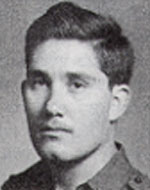Rafael (Rafi), son of Gina and David, was born on 15.11.1943 in Rehovot. When Rafi was four and a half years old, he died from his father who fell in the War of Independence. His brother David, who was born a few months later, was named after the father, who grew up in Rehovot and was a member of the “Scouts” movement, where he was active as an apprentice and counselor. With people, and it was only natural that friends always found a sympathetic ear, a warm Lev, and an open house with Rafi.This was open, honest and loyal, and above all devoted to his family with all his might. After completing his training course, he was assigned to an Intelligence Corps and completed a course for intelligence officers. After completing his officers’ course he continued to serve in various capacities until his release in the summer of 1966. His first job as a civilian began during the severe recession at the Davar branch in Rehovot. As the person in charge of the ads department, distributing the newspaper and books published by Davar, Rafi did a good job, acquired knowledge and experience in human relations, management and organization. In June 1967, at the outbreak of the Six-Day War, Rafi took part in his reserve unit as a deputy commander of the infantry unit and fought in the battles in the Gaza Strip and northern Sinai. In January 1969 he married a wife. At that time he moved to work as the coordinator of the Working and Studying Youth Division affiliated with the Rehovot Workers’ Council. Tirelessly and with great dedication, he took care of the organization of the youth of the fringes and found a suitable framework for him through ongoing social activities, trips, and finding a place of work for the boys, despite technical difficulties, bureaucratic clumsiness, and neglect by the establishment. In 1970, when the call for volunteering for a permanent army was issued during the War of Attrition, after deep deliberation, but with the decision to withdraw from the army, Determined, Rafi returned to active duty and was stationed in the Armored Corps, and was soon promoted to the rank of captain In July 1973 a new chapter opened in his life, when he began working at the “Motanei Beit Shemesh” factory in a senior security and administrative position, and he often said that the job was “sewn up” The factory and its employees became an integral part of his world at that time, but his days were numbered: three months later, the Yom Kippur War broke out. Even though he was not read, immediately arrived at the end of Yom Kippur and fought for his placement in a combat unit. At the end of the fighting, we heard from his comrades that Rafi joined the armored infantry company of the Armored Corps, which was heading northward to the Golan Heights, and despite his high rank, did not hesitate to accept any position even though it did not match his position and rank. (8.10.1973) In the afternoon, his unit encountered an ambush by Syrian armored and paramilitary forces near Ramat Magshimim, and during an assault on enemy forces, Rafi was hit by a helicopter in the rear, but the doctors’ efforts to save him during the flight failed. The bereaved family wrote, among other things, the division commander, Major General Moshe Peled: “Although Captain Rafi was a short time in the battalion, his comrades often talk about him, his bravery, And as a leader on the merits as a soldier and as a man. “In the days following the war, we also learned to recognize the Rafi” other “this-side of the barricade family. Meetings were held with the family sitting together heard from his comrades, subordinates and superiors and friends who worked with him in the civic, Rafi” HuhBlood and evil. “” He was as noble and kind as he was, “he said,” who never spared a good word or effort to help a friend. “His manager told him about the Beit Shemesh engine factory:” From the moment he set foot in my office I knew that he The man I was looking for. In my first conversation with him, I saw that this person had enormous potential, and without hesitation I offered him the position. Already at the beginning of his footsteps there was a close connection between him and the veteran workers of the place. Within a relatively short period of time, he became acquainted with the procedures and problems of the plant, while emphasizing great importance to human problems and devoting a great effort to this, which in his opinion was a primary factor for success. Indeed, with great personal charm and superior intelligence, he was able to breathe new life into the workers, with the same enthusiasm that is characteristic of new tasks and ongoing productive activity. With the power of his radiant personality and the maximum utilization of his natural abilities, he knew how to lead a team of workers with great moral responsibility and exemplary examples. “Such was pleasant, simple and modest, a smile never left his lips and his hand patting his back, A year later, Rafi was brought to eternal rest in the cemetery in Rehovot and was buried in the military section a few steps from his father.
